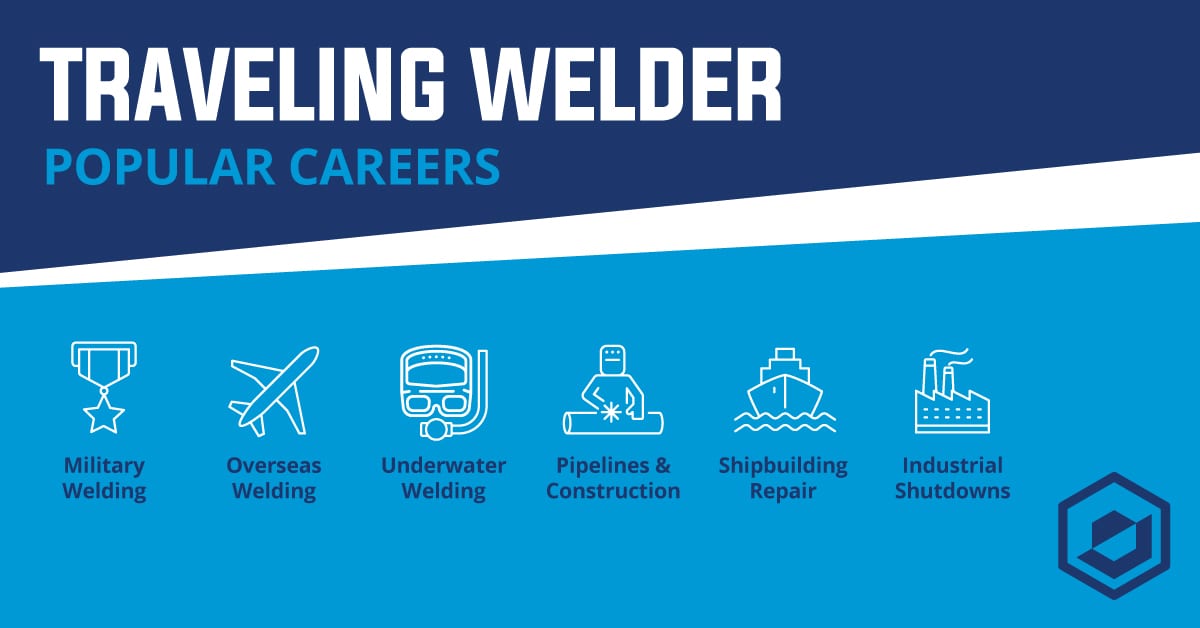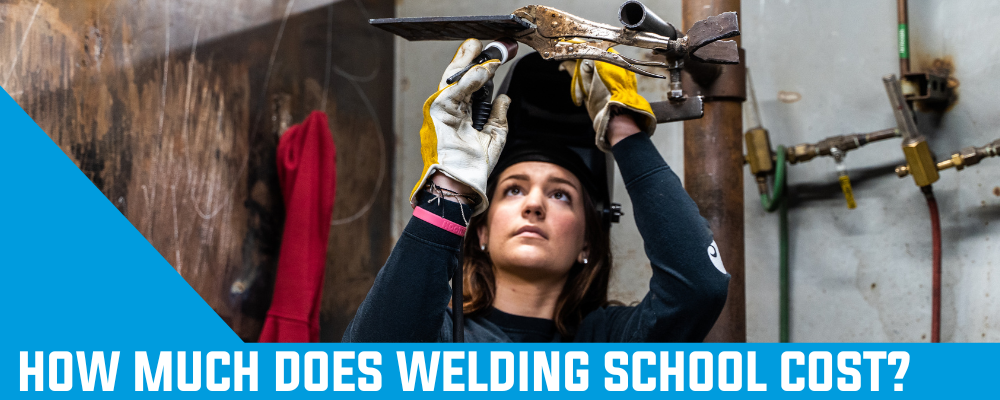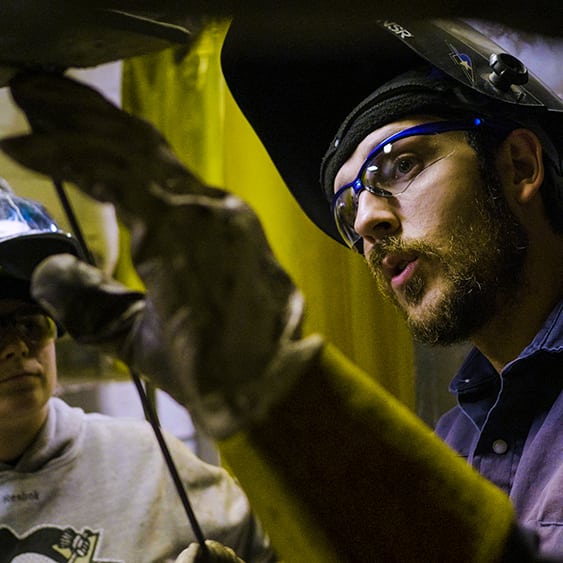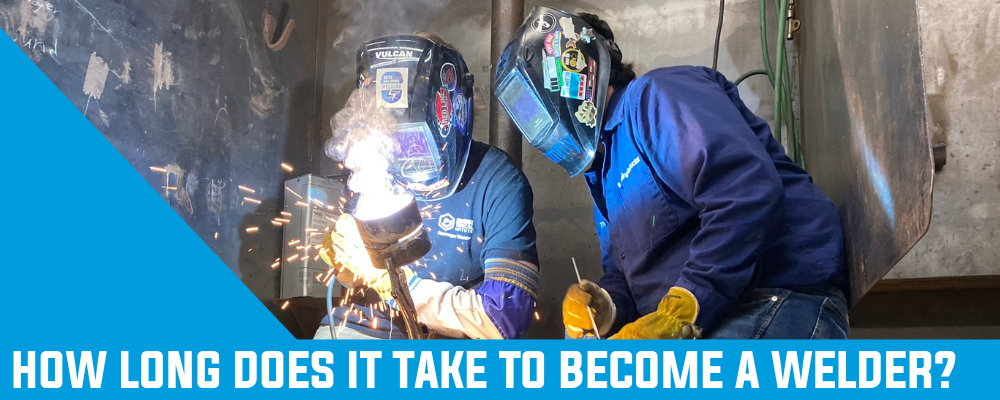Are you a recent high school graduate asking yourself, now what? If you’re not planning to go to a four-year college after high school, or if you’re just looking to change careers, welding can offer an exciting career path, especially for those willing to travel.
A career as a traveling welder can combine a love of travel with a welding career and offer interesting career opportunities. Meeting the education and training requirements to becoming a welder is the first step to starting a career as a traveling welder.
Do welders travel?
Welding jobs can be local, with minimal travel required. However, traveling welders travel longer distances to other cities or countries getting the opportunity to see new places while also gaining welding experience. Traveling welders can work in a variety of different areas, including pipeline installation and shipbuilding.
How do you become a traveling welder?
There is no one set career path to become a traveling welder. Many of the qualifications are the same as any welder, including completion of a training program and proper certifications. Midwest Technical Institute (MTI) offers two welding programs:
- Welding Program
- Welding & Pipefitting Program (includes advanced pipefitting)
Additional qualifications for traveling welders typically include [1] some experience in the welding field and specific certifications that vary depending on employer. Some employers prefer hiring traveling welders who possess particular skills like operating heavy equipment, while other employers, like the military, may ask you to complete additional training. This additional training [2] could include underwater training, climbing, or extreme weather preparedness.
Interested in Learning More About Welding?
Fill out the form below to receive info about our career training programs.
What is the average traveling welder salary?
Traveling welder salaries will vary depending on experience and area of expertise. The median pay for welders is $41,380 [3] and the median pay for pipefitters is $56,540 [4] according to the U.S. Bureau of Labor Statistics.Underwater welders with significant diving experience [5] can make more than the national average. According to the American Welding Society (AWS), many underwater welders are paid on a per-job basis. BLS states that the average annual wage is $59,470 [6] for commercial divers working in all underwater professions. These professions can include the inspection, repair, removal and installation of structures, using a variety of techniques including welding.
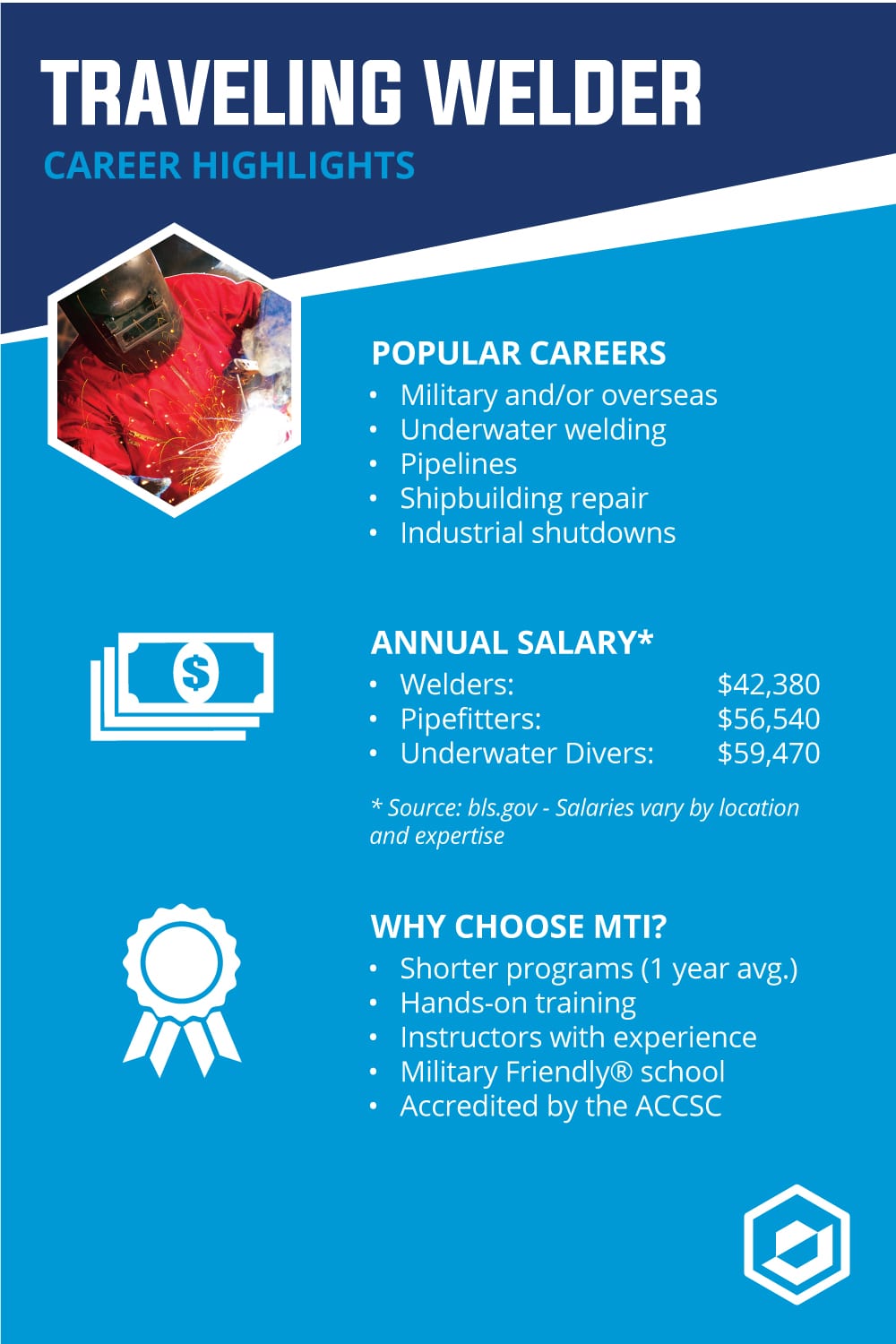
What are the top traveling welder careers?
It’s possible for traveling welders to find careers across the U.S., or in another country. A career as a traveling welder could be an ideal choice for a welder who enjoys traveling, seeing new places, and using their welding skills in a variety of different settings. Pursuing a career as a traveling welder could also be a good fit for recent high school graduates looking for new experiences.Traveling welders may find themselves working in various areas of welding including [7]:
- Military support
- Overseas
- Underwater welding
- Pipelines
- Shipbuilding repair and on-ship maintenance
- Industrial shutdowns
What does a military support welder do?
Military support welders could work all over the country at military bases or travel the world. Military support workers help [7] with the maintenance, building, and repair of heavy equipment, weapons, facilities, and transport. The salary for military support has the potential to be higher because of the risks involved.
How do you become an underwater welder?
Becoming an underwater welder begins similarly to all welding careers, with proper training and certification. Most underwater welders will need some experience “topside welding [8]” prior to beginning a career as an underwater welder. Topside welding, which is any welding that isn’t done underwater, gives welders the technique and skills needed to navigate common underwater welding scenarios.Welders who want to be underwater welders specifically must apply to commercial diving [5] school which requires passing a physical. Once commercial diving school is completed successfully you will receive your diving certifications. There will likely be additional underwater welding training required from an underwater welding school.Once these additional training tasks are completed you can begin looking for jobs as an underwater welder. Underwater welders are needed [7] in the oil and gas pipeline industry.
How do you find overseas welding jobs?
Overseas welders must have all the same skills as domestic welders, but they must travel to their destination. A welder may be hired through U.S.-based companies and then travel overseas. It is important to respect the workplace laws of the country in which you are working as a welder.Huntington Ingalls [9], a U.S. based company, hires welders for both its U.S. and worldwide locations. Graduates of MTI’s welding program have been placed with Huntington Ingalls Shipbuilders through MTI’s career placement assistance.
Is traveling welding right for you?
As a traveling welder you could have the opportunity to regularly experience interesting places and embrace new responsibilities, learning the latest welding applications and processes along the way. Having an open, positive attitude about these possibilities [5] may mean that traveling welder is the right career choice for you; particularly if you are a recent high school graduate excited about travel and ready for a future in the welding profession.
Begin your career as a traveling welder with welding training
To learn more about MTI’s Welding Programs, please fill out the form below.
Sources
[1] https://www.ziprecruiter.com/e/How-to-Become-a-Traveling-Welder
[2] https://www.ziprecruiter.com/e/What-Does-a-Traveling-Welder-Do
[3] https://www.bls.gov/ooh/production/welders-cutters-solderers-and-brazers.htm
[4] https://www.bls.gov/ooh/construction-and-extraction/plumbers-pipefitters-and-steamfitters.htm#tab-5
[5] https://awo.aws.org/2015/07/taking-the-plunge-is-underwater-welding-for-you/
[6] https://www.bls.gov/oes/current/oes499092.htm
[7] https://www.cromweld.com/types-of-welding-jobs/
[8] https://www.leisurepro.com/blog/underwater-guides/how-to-become-an-underwater-welder/
